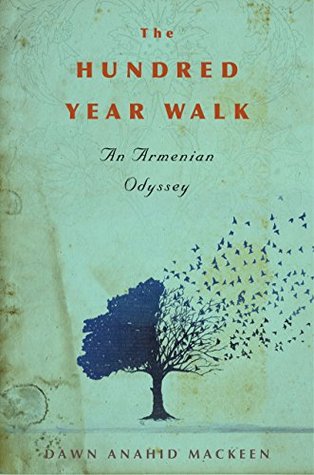More on this book
Community
Kindle Notes & Highlights
Read between
February 16 - February 21, 2025
Deir Zor.”
The word echoed, much like Auschwitz does to the families of Holocaust victims and survivors. It was the terminus of the death march, of all the encampments that had once dotted present-day Turkey and Syria. This was the place her father called hell when he spoke of it, and for good reason. The region around Deir Zor was one of the empire’s worst slaughterhouses.
The coalition of the Ottoman Empire, Austria-Hungary, and Germany would grow into the Central Powers. They would fight the Triple Entente, or the Allied Powers—Great Britain, France, and Russia—in what would become the deadliest conflict of modern times.
Despite censorship, news of the “race extermination” was beginning to reach the rest of the world. Pleas to save the Armenians arrived at the U.S. State Department. Morgenthau tried to persuade the Ottoman Empire’s ally Germany to assist in stopping the persecution. The German ambassador did raise the subject, but the massacres continued nonetheless. Once again, the Turks warned other countries not to interfere in their domestic affairs. It was an effective defense when combined with foreigners’ reluctance to intervene. The headlines in the United States and the international press told of the
...more
Eight miles away was Incirlik Air Base, where the United States launched much of its operations to the Middle East, with the cooperation of its Turkish ally. Before my trip, the media had frequently mentioned that U.S. politicians feared the Turks might cut off access to the base if the Americans recognized the Armenian killings as genocide.
Morgenthau did what he could to help, but it was not enough. Hundreds of thousands had died, and there was no end in sight. Demoralized, he asked to leave his post. During his farewell meeting with ministers Talaat Pasha and Enver Pasha that January, he raised the issue of the Armenians again. “What’s the use of speaking about them?” Talaat Pasha asked, waving his hand in the air. “We are through with them. That’s all over.”
Still haunted by what he had witnessed, Morgenthau penned his memoir. “My failure to stop the destruction of the Armenians had made Turkey for me a place of horror, and I found intolerable my further daily association with men who, however gracious and accommodating and good-natured they might have been to the American Ambassador, were still reeking with the blood of nearly a million human beings,” he wrote.
The mass exodus was due to a new Interior Ministry directive. All Armenians in their vilayet had to move on. Despite almost a year of death marches and massacres, many Armenians remained stubbornly alive. The objective now was to close the encampments near Aleppo and push the outcasts farther into largely uninhabited terrain. To prepare for this final stage, Talaat Pasha reorganized the leadership in provinces and had the Armenian orphanages cleared. This marked the beginning of, as one historian described it, the holocaust’s “Second Phase,” which followed the first wave of deportation.
As the officer questioned me, I tried to answer like any tourist would, expounding on my lifelong desire to visit the ancient riches of Turkey and Syria, which was partly true. I wasn’t lying per se, and I wanted to be more forthcoming, but given that it was illegal to say the words Armenian genocide in Turkey, I didn’t want to take any chances. The Turkish guard waved me through.


